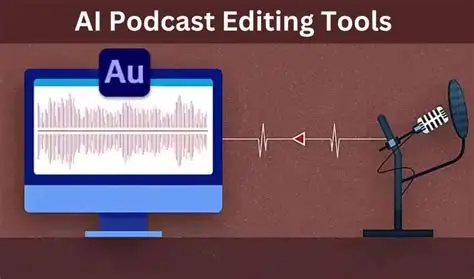In this article, I will talk about the Best AI Tools for Podcast Editing that audio production for creators of any level. Transcription, noise removal, automatic leveling, and content repurposing done by these tools save time while improving quality.
AI podcast editors do the heavy lifting for beginners and professionals alike, providing effortless polishing for the episodes, making them more engaging for the listeners.
What is Podcast Editing tools?
Podcast editing tools are specific programs or apps created to enhance a podcast’s audio quality and organization. They assist podcasters with background noise removal, sound level balancing, section cutting, smooth transitions, and the addition of music or sound effects.

Automation of background noise removal, transcription, and audio mastering using AI is now more prevalent, which speeds up processes and increases professionalism.
Automation of background noise removal, transcription, and audio mastering using AI tools is now more prevalent, which speeds up processes and increases professionalism. Engaging and captivating polished episodes that retain and maintain listeners’ attention is the goal of podcast editing tools.
How To Choose AI Tools for Podcast Editing
To effectively select AI tools relevant to podcast editing, please follow the pointers list below:
Usability – Choose tools that have automated functions to cut editing time and have user-friendly interfaces.
Audio Output – Confirm that the AI in question has clear output as well as noise, echo, and sound reduction features.
Services Provided – Check if the AI has smart cut, transcription, auto-leveling, and music insert features.
Interoperability – Confirm if the software accepts your file types and if it works with your recording software.
Cost – Assess your requirements and match them with other services offered in the free and paid versions.
Technical Support – Use the aids and community available information to select tools with tutorial and community help.
Adaptability – Choose software that allows growth for your other podcasting integration needs.
Key Point & Best AI Tools for Podcast Editing List
| Tool | Key Point |
|---|---|
| Descript | All-in-one editor with text-based audio/video editing and transcription. |
| Alitu | Automates audio cleanup, leveling, and publishing for podcasters. |
| Capsho | AI tool that generates podcast show notes, titles, and marketing content. |
| Podcastle | Offers remote recording, multitrack editing, and AI-powered enhancement. |
| Cleanvoice AI | Specializes in removing filler words, background noise, and stutters. |
| Resound | AI editor that automates silence trimming and noise reduction. |
| Auphonic | Known for audio mastering, leveling, and intelligent noise reduction. |
| Wisecut | Auto-generates subtitles, removes silence, and creates short clips. |
| Recast Studio | Converts podcasts into engaging video clips for social media sharing. |
| AudioPen | Turns spoken thoughts into clean, structured written content quickly. |
1.Descript
Descript is arguably one of the best AI tools for editing podcasts because of how it revolutionizes the management of audio files. Descript lets you edit podcasts through text snippets, allowing for a more intuitive workflow than the traditional editing method.
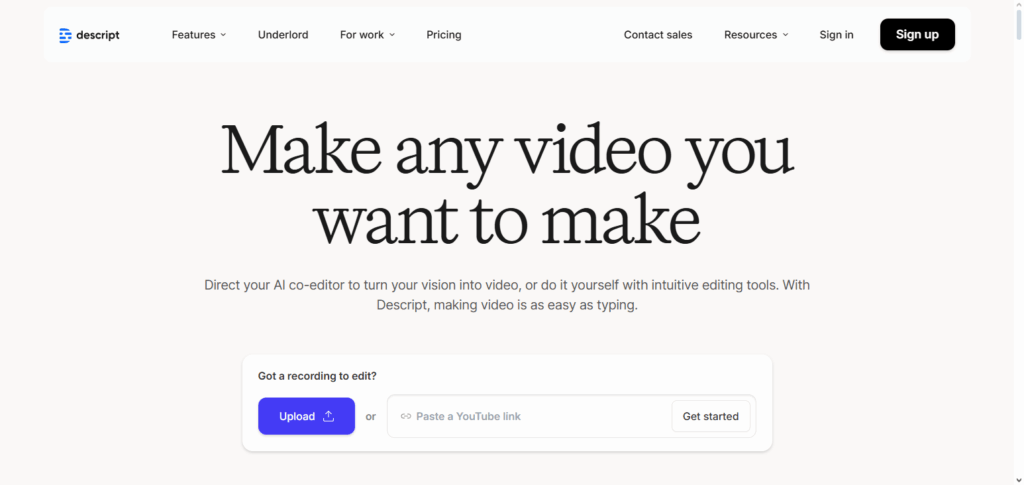
Descript’s strongest features lies in Overdub, which allows for effortless editing without the need to re-record using realistic AI voice clones. With features such as transcription, multitrack editing, and screen recording, Descript boosts productivity and allows for effortless production of refined podcasts.
2.Alitu
Alitu stands out as a top AI solution for podcast editing due to its simplicity and automation, which makes it ideal for busy creators and novices. Its distinctive feature is the automated audio cleanup, sound level balancing, and recording stitch together procedures which are done without any manual input.
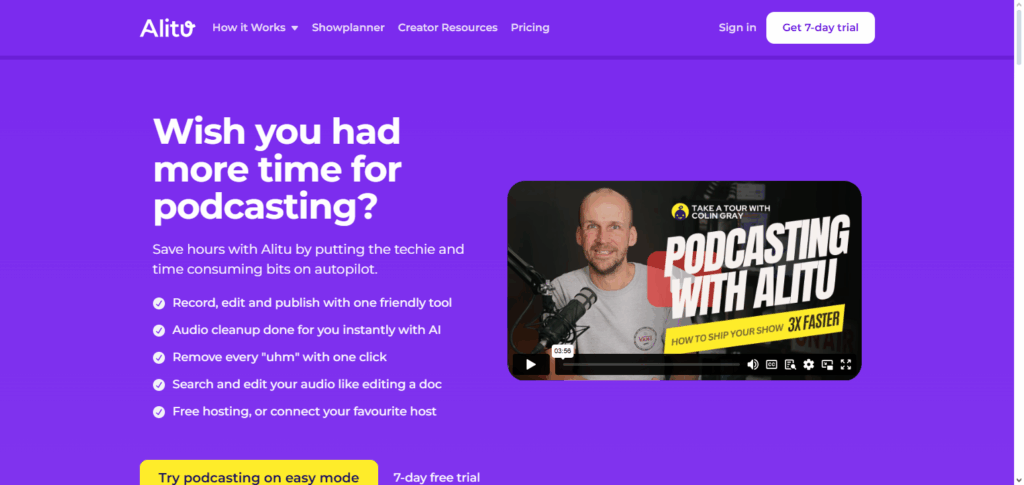
Also, Alitu’s direct publishing feature to podcasting platforms is a rarity; most tools do not publish directly, which adds to the time consumed in post-production. Its music and branding features allow podcasters to incorporate and integrate these elements directly within the application, aiding in professional episode production.
3.Capsho
Capsho is deservedly recognized among the top AI podcast editing tools because it focuses on comprehensive content repurposing rather than just audio cleanup. Its distinct advantage is the automation of show notes, title creation, as well as transcription for blogs and social media posts based on the content of a podcast episode.

This functionality not only saves time, but it also aids podcasters in expanding their reach and improving their discoverability. Capsho turns raw audio into marketing content, and in so doing, it streamlines promotional efforts, thus making it an indispensable tool for creators looking to widen their reach.
4.Podcastle
Podcastle is one of the leading new AI tools for podcast editing and stands out for its editing and recording features which are bundled within a single browser based platform. Its most distinguishing characteristic is remote recording.

Unlike other platforms, guests are capable of recording audio and video from their locations in studio quality. It features noise reduction, transcription, and AI-powered multitrack editing which simplifies the production process for everyone from novice to experienced podcasters. In addition to audio, Podcastle provides tools for the creation of video podcasts, enhancing its usefulness for visual and audio storytelling.
5.Cleanvoice AI
Cleanvoice AI is one of the leading AI tools for editing podcasts, as it focuses on the meticulous processing of speech. Its most distinct characteristic is the automatic cancellation of filler words, stutters, mouth sounds, and pauses.
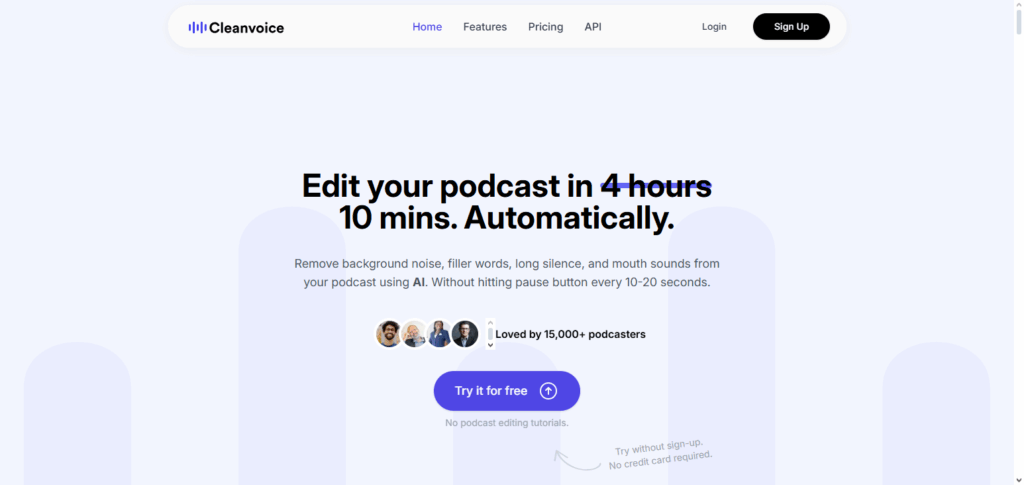
This alteration enables dialogue to progress seamlessly, avoiding the need for excessive manual editing. This specialization enables podcasters to produce polished, smooth, and high-quality episodes while saving them from countless hours of drudgery. Through the meticulous voice polishing devoid of inauthenticity, podcasters sound appealing to engage with, thus making Cleanvoice AI a dependable partner for creators.
6.Resound
Resound is acclaimed as one of the leading AI solutions for podcast editing due to its efficient automation of the editing workflow. Its strongest feature is the automatic detection and removal of silences, pauses, background noise, and redundant phrases, thereby minimizing the editing burden for creators.

Moreover, the collaborative tools offered by Resound facilitate straightforward workflows for team-based episode reviewing and polishing. Through its focus on efficient production workflows and clean audio results, Resound helps save time for podcasters while providing polished content.
7.Auphonic
Auphonic is lauded as one of the leading AI solutions for podcast editing due to its focused automation of high-grade audio mastering. Its standout feature is the automatic dynamic range compression that balances voice, music, and sound effects to the same level for all listeners.
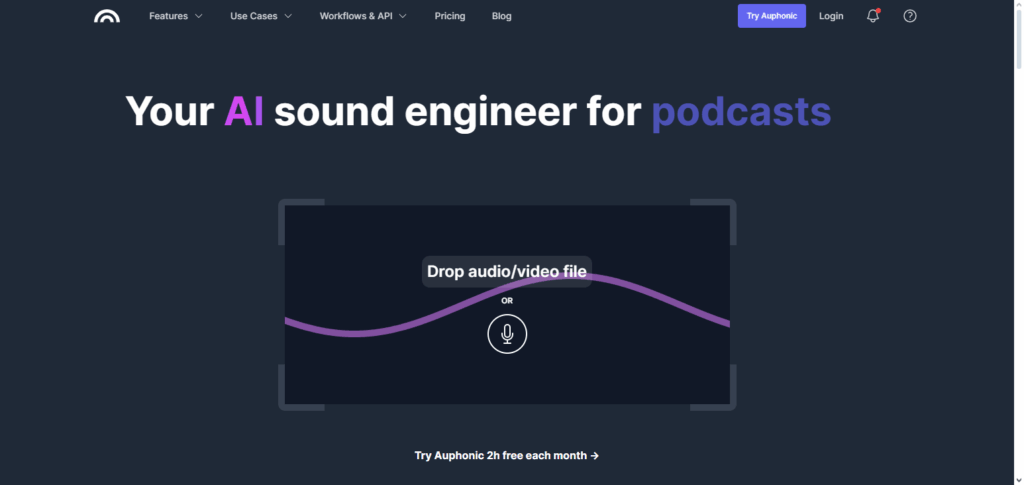
In addition, Auphonic applies adaptive noise reduction and encoding specific to each platform. Its automation of advanced audio engineering processes empowers novice podcasters to produce broadcast-quality episodes without requiring technical knowledge.
8.Wisecut
Wisecut is an excellent AI tool for podcast editing as it swiftly converts lengthy recordings into shorter, more interesting episodes. Its distinctive feature includes the automated silence removal combined with smart, AI-assisted cuts that keeps the editing smooth and saves countless hours of repetitive editing.
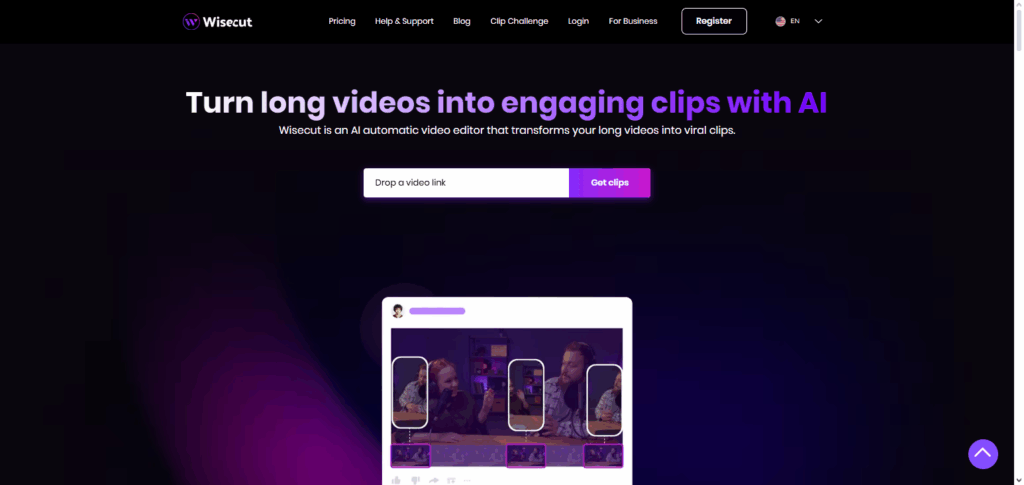
Wisecut additionally creates subtitles, translates texts, and creates long-form videos into short clips tailored for social media. Wisecut aids in automation alongside editing to enhance accessibility, issue polished episodes, and reach diverse audiences effortlessly for podcasters.
9.Recast Studio
Recast Studio stands out as one of the leading AI solutions for podcast editing, seamlessly integrating the editing process with audience engagement. Its hallmark feature is the transformation of podcast audio into visually engaging video snippets or audiograms, ideal for promotional use on social media.

In addition to the standard editing features, Recast Studio aids podcasters in content repurposing, transforming content into more shareable and accessible formats to increase prominence and reception. Its unique emphasis on marketing and audience development is particularly useful for creators seeking to grow beyond the boundaries of audio-only platforms.
10.AudioPen
AudioPen is one of the most efficient AI tools designed for editing podcasts, as it effortlessly organizes raw speech into coherent text. Its core value is transforming unstructured voice memos into refined episode scripts, summaries, or outlines, enabling efficient podcaster episode planning.
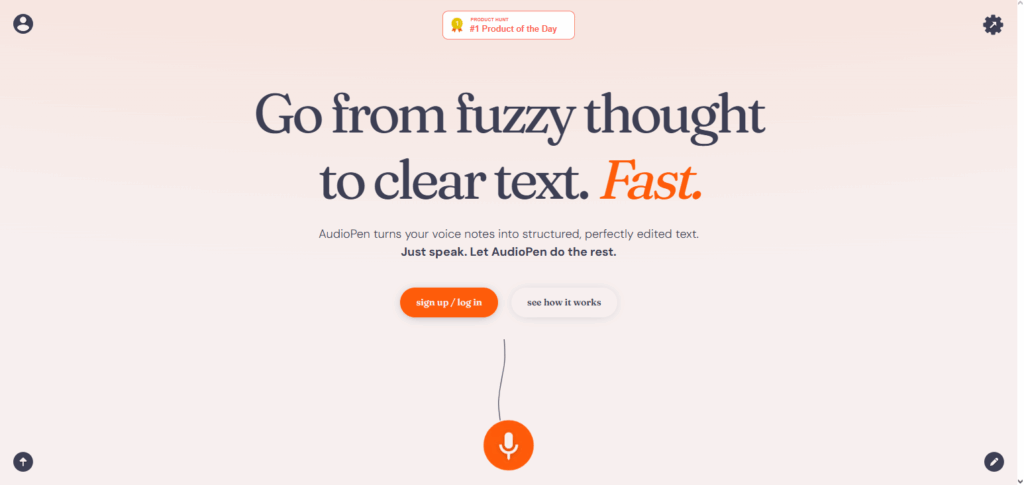
AudioPen is most beneficial to creators who desire a clear and professional narrative as it reduces the time spent on scripting and post-production by bridging the divide between audio recording and content creation.
Pros & Cons AI Tools for Podcast Editing
Pros
Time-Saving – Functions such as noise removal, leveling, and silence trimming are done automatically.
Beginner-Friendly – There is no need for advanced audio engineering knowledge.
Content Repurposing – Many tools automatically generate transcripts, show notes, and social media clips.
Consistency – Maintains a professional standard of audio quality throughout episodes.
Cost-Effective – Reduces costs associated with editing software and outsourcing freelance work.
Collaboration – Editing and reviewing are simple for teams in cloud-based platforms.
Cons
Limited Customization – Personal creativity may be overridden by standard AI edits.
Learning Curve – Some tools may be difficult to learn.
Internet Dependence – Tools that are cloud-based require stable internet connection.
Subscription Costs – Premium packages with advanced features often come with a monthly or yearly fee.
Potential Errors – Useful content may be eliminated, or pauses misinterpreted due to inaccurate AI editing.
Data Privacy – Concern regarding confidentiality is raised when audio files are uploaded to AI platforms.
Conclusion
To summarize, the most effective AI solutions for podcast editing are revolutionizing content production and distribution. These technologies ease every stage of podcast production from noise reduction, audio leveling, transcription, content repurposing, to even marketing support.
AI solutions are ideal for automation for novices, and for efficiency for veterans in the field. Consistent and polished outcomes are achieved with these AI-driven platforms. Meeting the goals set enhances work quality and saves time, giving podcasters the ability to focus on audience engagement.
FAQ
Why should I use AI tools for podcast editing?
They save time, improve audio quality, and provide beginner-friendly solutions that don’t require deep technical skills.
Are AI podcast editing tools free?
Some offer free plans with limited features, but advanced functions like transcription, publishing, or mastering usually require paid subscriptions.
Can AI tools replace human editors?
AI tools handle repetitive and technical tasks efficiently, but human editors may still be needed for creative storytelling or complex sound design.




